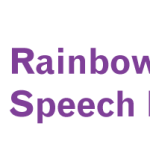WHY IS MY CHILD STUTTERING?
 Last time we shared that stuttering is NOT caused by parents. It can be influenced by the home environment, however this is not the primary cause. The fact is, stuttering is influenced by a number of factors that are within the child.
Last time we shared that stuttering is NOT caused by parents. It can be influenced by the home environment, however this is not the primary cause. The fact is, stuttering is influenced by a number of factors that are within the child.
Stuttering is a neurological dysfunction involving:
- Genetic factors
- Temperament (e.g., when the child is excited or dysregulated)
- Environment (e.g., if they need to compete to talk)
- Motor skills such as speech difficulties
- Language difficulties
That’s a lot of different factors! And they all interact with each other. For example, a child may stutter if they have advanced language skills, but their motor skills (for talking) are underdeveloped. Their brains may be trying to get their mouths to move faster than they are able to. Many stuttering therapies focus on reducing the demands of the child, to improve their capacity for smooth speech.
Another question you may have is how long will my child stutter for? Will they just grow out of it? Studies have shown that there are a number of factors that can influence the persistence of a stutter.
A child is more likely to continue stuttering if:
- There is a family history
- They are a boy (2 boys for every 1 girl continues to stutter in preschool years which goes up to 4-1 in school aged)
- If they start stuttering later (over 3.5 years old has increased risk of persistence)
- If they stutter for longer than 6 months-1year (especially girls as girls will generally recover from stuttering more quickly)
- If their stutter is more severe (duration or stutter, frequency of stutter, type of stutter – blocks and prolongations are considered more severe)
- Increased risk for children with below normal phonological skills
- Negative experiences when talking that may trigger speech related anxiety, as the child gets older.
If you have a child who stutters and you are unsure if they will need some extra help to resolve it, book in with your local speech pathologist for some help! Speech Pathologists are trained to assess and treat people who stutter, of all ages.
References
Guitar, B. (2014). Stuttering: An Integrated Approach to Its Nature and Treatment. Baltimore: Lippincott, Williams & Wilkins (4th Ed)
McAllister, J. (2016). Behavioural, emotional and social development of children who stutter. Journal of Fluency Disorders, 50, 23-32.
Yairi, E. & Ambrose, N. (2005). Early Childhood Stuttering: For Clinicians By Clinicians, ProEd, Austin, TX.
Yaruss, J. S., & Reardon, N. (2010). Young Children Who Stutter: Information and Support for Parents. New York: National Stuttering Association (NSA).
Yaruss, J. S., & Reardon-Reeves, N. (2017). Early childhood stuttering therapy: A practical guide. Stuttering Therapy Resources, Incorporated.
Written by Jonathon Cronk – Speech Pathologist


